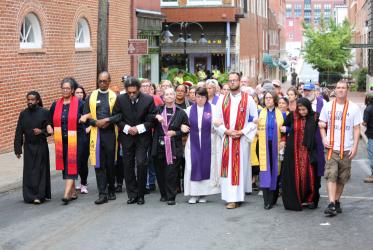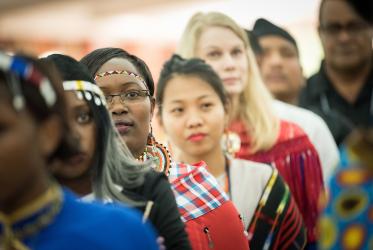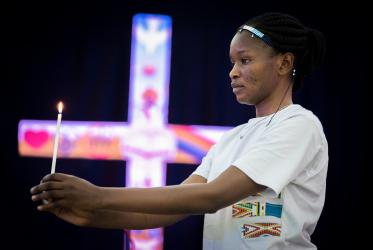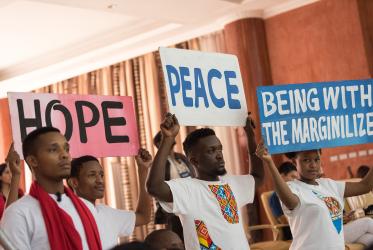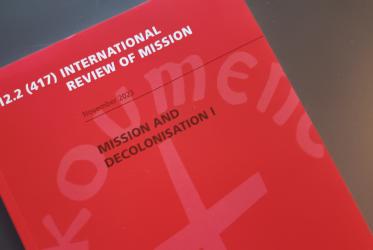Twenty people met in person and online, to engage on how the WCC Commission on World Mission and Evangelism and the Program for Overcoming Racism, Xenophobia, and Related Discrimination can work to centre mission and common witness on reparatory justice.
Participants came from churches, mission societies, activist organizations, and the UN, all of them addressing the impact of the legacies of colonisation and the realities of neo-colonisation on African, African descendent, and Indigenous communities. The three-day meeting focused on sharing the practice of the various participants in their contexts and then moved to consider strategies to work intentionally together.
The meeting brought together many different communities who are working towards reparatory justice and named many who were not present which points to the need to strategise and connect together. Faith communities have a key role to play, in part because Christianity bears much responsibility for the sin of colonialism and the inequities it has created, and because God’s spirit has been moving communities to resist colonialism since the beginning. Therefore, the WCC needs to develop practices and wisdoms which can help those who have not yet started this work, and consider how we connect with those further engaged in it beyond church spaces.

Photo: WCC
“Bringing together a group of diverse theologians and activists to explore the theme of Mission as Reparative Justice proved to be an incredible transformative and spiritually empowering experience,” said Rev. Michael Blair, moderator of the WCC Commission on World Mission and Evangelism. “It has laid a critical foundation for the work of the commission going forward. It has the potential of helping member churches and civil societies wanting to engage the work of repairing historical harms to accompany each other in order to transform communities into places of healing and wholeness.”
Rev. Canon Dr Peniel Rajkumar, theologian and director for global mission for Partners in Global Mission, said: “This opportunity to consider the question of reparations through the lens of mission holds great promise as various mission organisations, including Partners in Global Mission, embrace the task of repair as a moral and missional mandate. The meeting offered us the space to discern what it might mean in practice to reverse our unjust past as a path towards God’s just future.”
Rev. Dr Peter Cruchley, director of the WCC Commission on World Mission and Evangelism, commented: “The ecumenical movement offers then a vital space to better act, understand, and engage with this justice struggle and disrupt the normalising of the wrongs African, African descendent, and Indigenous people face with others and the earth,” he said.

